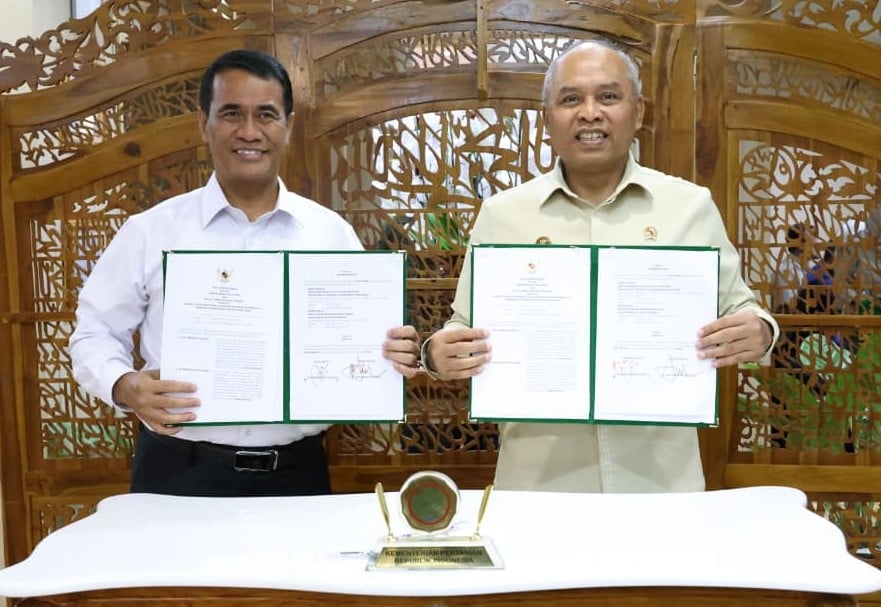As Indonesia accelerates its digital transformation in the agricultural sector, cybersecurity has become a crucial pillar in ensuring national food security and technological resilience. Recognizing this urgency, the Ministry of Agriculture (Kementerian Pertanian or Kementan) and the National Cyber and Encryption Agency (Badan Siber dan Sandi Negara or BSSN) have announced a formal collaboration to strengthen agricultural cybersecurity across Indonesia’s farming ecosystem.
The partnership reflects a growing awareness that digital threats in agriculture are no longer hypothetical. With smart farming technologies, IoT sensors, and data-driven crop management becoming mainstream, Indonesia’s agriculture now depends heavily on secure digital infrastructure.
The Growing Importance of Agricultural Cybersecurity
In recent years, Indonesia has seen significant progress in adopting digital tools to modernize agriculture. Initiatives such as e-farming platforms, smart irrigation systems, and satellite-based crop monitoring have helped farmers improve productivity and efficiency. However, these advancements also expose new vulnerabilities.
Cyberattacks targeting agricultural databases, supply chain systems, and remote monitoring devices could disrupt food production or even manipulate market data. According to a 2024 report from the Indonesian Cybersecurity Forum, agriculture ranks among the top five sectors vulnerable to cyber incidents due to its expanding digital footprint and limited cybersecurity awareness among rural operators.
This is where agricultural cybersecurity becomes critical. By safeguarding digital assets such as farm data, logistics records, and sensor networks, Indonesia can ensure that its digital agriculture transformation remains secure, reliable, and sustainable.
A Unified Strategy for a Secure Agricultural Ecosystem
The collaboration between Kementan and BSSN aims to build a national framework that integrates cybersecurity protocols into every layer of agricultural operations. This includes risk management, data governance, and incident response systems.
According to BSSN officials, the partnership will involve three main focus areas:
- Capacity Building and Digital Literacy
- The first phase will focus on training agricultural officers, data analysts, and farmers on cybersecurity best practices. Many rural farmers now use digital tools for monitoring crops, processing payments, and accessing markets. Yet, few are equipped with knowledge about data protection or recognizing phishing attempts.
- Infrastructure and System Protection
- BSSN will work closely with Kementan’s IT division to audit and secure digital infrastructure used in agricultural systems. This includes protecting cloud-based data storage, IoT-enabled equipment, and national agricultural information platforms from potential breaches.
- Incident Response and Risk Mitigation
- The two agencies will establish a joint task force to identify and mitigate cybersecurity risks specific to agriculture. This will allow faster responses to data leaks or cyberattacks that could impact national food distribution or production systems.
By embedding agricultural cybersecurity into these core areas, Indonesia hopes to set a benchmark for secure digital agriculture in Southeast Asia.
The Digital Transformation of Indonesia’s Agriculture
Indonesia’s agriculture sector is currently undergoing one of its most significant transformations in history. Driven by the national “Smart Agriculture” roadmap, the government is promoting technologies such as precision farming, big data analytics, and machine learning for crop forecasting.
Digitalization is also enabling better market access for smallholder farmers. Platforms connecting producers with buyers or providing real-time pricing data are improving rural incomes. However, as more digital platforms emerge, so do new risks — from ransomware attacks on logistics systems to unauthorized data extraction from agricultural databases.
Experts warn that even a small cyber incident can have ripple effects across supply chains. For example, a compromised sensor network could give incorrect data about soil or weather conditions, leading to poor crop management. Similarly, cyberattacks on e-marketplaces could distort price information, affecting thousands of farmers.
That is why agricultural cybersecurity must evolve alongside innovation. The integration of BSSN’s cyber defense capabilities with Kementan’s agricultural data infrastructure is a proactive step toward ensuring that technology becomes a strength, not a vulnerability.
Strengthening Collaboration Between Government and Industry
Beyond government collaboration, the success of agricultural cybersecurity also depends on cooperation with the private sector. BSSN and Kementan are encouraging startups, agri-tech companies, and data service providers to adopt robust cybersecurity standards.
Indonesia’s agritech ecosystem has grown rapidly, with companies developing tools for precision farming, digital financing, and traceability. Many of these startups handle sensitive data, from farmers’ personal information to export documentation. Without adequate protection, this data could become a target for cybercriminals.
To prevent such risks, the government plans to create standardized cybersecurity certification for agri-tech platforms. This initiative aligns with Indonesia’s National Cybersecurity Strategy 2024–2029, which prioritizes critical sector protection, including food and agriculture.
Cybersecurity as a Pillar of Food Security
In a broader sense, strengthening agricultural cybersecurity is directly linked to ensuring food security. Digital disruptions in agriculture could affect everything from production forecasts to food distribution. The government’s move to integrate cyber protection into its agricultural policy is a forward-thinking response to these emerging challenges.
As global threats like data espionage and ransomware become more sophisticated, the agricultural sector cannot remain a soft target. By establishing a resilient digital ecosystem, Indonesia is taking a major step toward securing its food supply and protecting millions of farmers who depend on digital systems.
Kementan and BSSN’s partnership reflects a vision for a safer, smarter agricultural future — one where technology enhances resilience instead of creating new vulnerabilities. The collaboration underscores Indonesia’s commitment to building not just a productive farming industry, but one that is digitally and strategically secure.
Read More






 Saturday, 24-01-26
Saturday, 24-01-26







